

What is Arrow Weight?
Arrow weight is simply the total weight of your arrow, including the shaft, point, fletchings, and any other components. It's measured in grains, not pounds.
How is Arrow Weight Measured?
To measure arrow weight, you’ll need a digital arrow scale. These scales are super accurate and can measure your arrow’s weight to the nearest grain.
Factors Affecting Arrow Weight
Several factors influence your arrow’s weight. The main ones are:
Shaft material and length: Carbon shafts are generally lighter than aluminum, and longer shafts weigh more.
Point weight: Heavier points obviously add weight to your arrow.
Fletchings: While not significant, fletchings do contribute to overall weight.
Inserts and nocks: These small components can add up.
The Importance of Arrow Weight
You might be wondering why arrow weight even matters. Well, it plays a crucial role in several aspects of archery.
Arrow Weight and Bow Performance
Your bow is designed to work optimally with a specific arrow weight range. If your arrow is too light, it might not accelerate properly, and you could lose speed and energy. On the other hand, an arrow that's too heavy can slow down your bow and affect its efficiency.
Arrow Weight and Penetration
Penetration is how deep your arrow will penetrate a target. Heavier arrows generally have better penetration due to their increased kinetic energy. However, this doesn't mean you should go for the heaviest arrow possible. We'll talk more about this later.
Arrow Weight and Accuracy
Believe it or not, arrow weight can also affect your accuracy. A properly tuned arrow will fly straighter and be less affected by wind.
Determining the Right Arrow Weight
So, how do you figure out the perfect arrow weight for you?
The 5 Grains Per Pound Rule
A common starting point is the 5 grains per pound rule. This means your arrow should weigh 5 grains for every pound of draw weight. For example, if your bow is 60 pounds, your arrow should weigh around 300 grains.
Other Factors to Consider
While the 5 grains per pound rule is a good baseline, it’s not set in stone. Other factors to consider include:
Your bow's speed: Faster bows can handle lighter arrows.
The type of archery you do: Target archers might prefer lighter arrows for speed, while hunters might opt for heavier arrows for penetration.
Your personal preference: Ultimately, the best way to find the perfect arrow weight is through experimentation.
How to Calculate Arrow Weight
Calculating arrow weight is pretty simple. Just add up the weight of each component: shaft, point, fletchings, insert, and nock.
Tips for Choosing the Right Arrow Weight
Now that you have a better understanding of arrow weight, here are some tips to help you choose the right one.
Experimentation is Key
The best way to find the perfect arrow weight is to experiment. Try different arrow weights and see what works best for you.
Consider Your Shooting Style
Your shooting style can also influence your arrow weight choice. For example, if you’re a bowhunter targeting big game, you might want a heavier arrow for better penetration.
Don't Overlook Other Components
While arrow weight is important, don't forget about other components like spine, fletchings, and broadheads. These factors also play a role in arrow performance.
Conclusion
Choosing the right arrow weight is essential for optimal archery performance. By understanding the factors that affect arrow weight and experimenting with different options, you can find the perfect setup for your bow and shooting style. Remember, there's no one-size-fits-all answer, so don't be afraid to try different things until you find what works best for you.